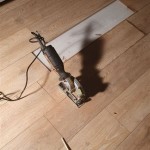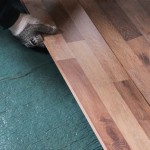The Ultimate Guide to Installing Vinyl Flooring
Installing vinyl flooring can be a great way to update the look of your home without breaking the bank. Vinyl flooring is durable, water-resistant, and easy to clean, making it a great choice for busy families and pet owners. With a little planning and preparation, you can install vinyl flooring yourself in a weekend.
1. Choose the Right Type of Vinyl Flooring
There are two main types of vinyl flooring: sheet vinyl and luxury vinyl plank (LVP). Sheet vinyl is a single sheet of material that is installed over a subfloor. LVP is made up of individual planks that are clicked together to create a floating floor.
Sheet vinyl is less expensive than LVP, but it can be more difficult to install. LVP is easier to install, but it is more expensive than sheet vinyl.
Once you have chosen the type of vinyl flooring you want, you need to decide on the color and style. Vinyl flooring comes in a wide variety of colors and styles, so you can find the perfect option to match your décor.
2. Prepare the Subfloor
Before you can install vinyl flooring, you need to prepare the subfloor. The subfloor must be smooth, flat, and free of debris. If the subfloor is not level, you will need to level it before you can install the vinyl flooring.
To level the subfloor, you can use a self-leveling compound. Self-leveling compound is a liquid that you pour onto the subfloor. The compound will self-level, creating a smooth, flat surface.
3. Install the Vinyl Flooring
Now that the subfloor is prepared, you can install the vinyl flooring. If you are installing sheet vinyl, you will need to spread a layer of adhesive on the subfloor. Once the adhesive is spread, you can roll out the sheet vinyl and smooth it into place.
If you are installing LVP, you will need to click the planks together. Start by installing the first row of planks along the longest wall in the room. Once the first row is installed, you can continue installing the rest of the planks by clicking them together.
4. Finish the Installation
Once the vinyl flooring is installed, you need to finish the installation by trimming the edges and installing the baseboards. To trim the edges, you will need a utility knife. To install the baseboards, you will need a miter saw and a nail gun.
Installing vinyl flooring is a great way to update the look of your home without breaking the bank. Vinyl flooring is durable, water-resistant, and easy to clean, making it a great choice for busy families and pet owners. With a little planning and preparation, you can install vinyl flooring yourself in a weekend.

A Complete Guide How To Stagger Vinyl Plank Flooring Whole Cabinet Supply

The Ultimate Guide To Vinyl Flooring

A Beginner S Guide To Installing Vinyl Plank Flooring Dumpsters Com

Flooring Installation Best Practices A Complete Guide

Ultimate Guide On How To Install Vinyl Flooring Oneplus

Vinyl Floor Tiles Complete Guide To Pvc And Installation

The Essential Guide To Vinyl Flooring Lv Hardwood Toronto

Installing Vinyl Floors For The First Time Home Renovation

Everything You Need To Know About Vinyl Floors Forbes Home
Ultimate Guide To Sheet Vinyl Mannington
See Also







